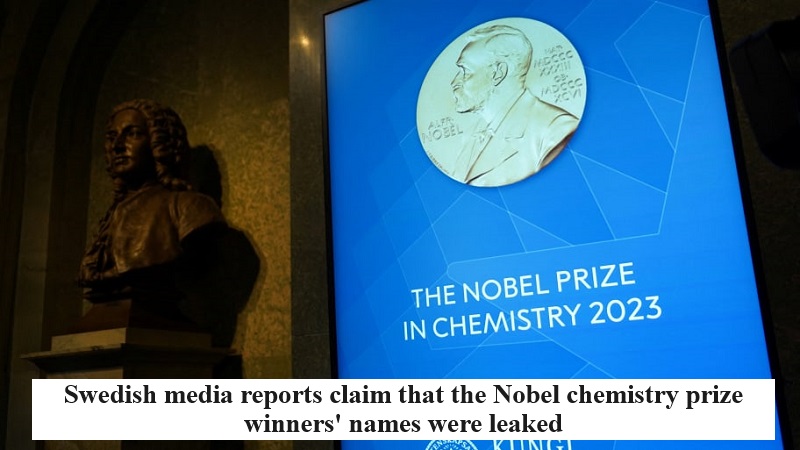
The Swedish Royal Academy of Sciences unintentionally revealed what appeared to be the names of three scientists who were reportedly selected for this year’s Nobel Prize in chemistry, as reported by Reuters, citing a Swedish newspaper. Notably, this revelation occurred well before the official announcement of the award. Swedish newspaper Aftonbladet obtained and subsequently published an email, ostensibly originating from the academy, which listed the laureates as Moungi G. Bawendi, Louis E. Brus, and Alexei I. Ekimov.
Another Swedish daily, Dagens Nyheter (DN), also referenced the email, stating that it mentioned the Nobel Prize in Chemistry for 2023 was intended to recognize the discovery and advancement of quantum dots. DN reported, “The Nobel Prize in Chemistry in 2023 rewards the discovery and development of quantum dots, nanoparticles that are so small that their size determines their properties,” based on the academy’s email.
Johan Aqvist, the chair of the academy’s Nobel committee for chemistry, offered clarification that this incident resulted from a “mistake by the Royal Swedish Academy of Sciences. Our meeting starts at 0930 CET (0730 GMT), so no decision has been made yet. The winners have not been selected.” The official unveiling of this year’s Nobel Prize in Chemistry is scheduled for 1145 CET (0945 GMT).
Nanoparticles and quantum dots find numerous applications, notably in LED lights and television screens. In the field of healthcare, they aid surgeons in the removal of cancerous tissue.
Among the purported laureates, Moungi G. Bawendi is affiliated with the Massachusetts Institute of Technology (MIT), Louis E. Brus holds the title of professor emeritus at Columbia University, and Alexei I. Ekimov is associated with Nanocrystals Technology Inc. The controversy surrounding the disclosure of these names prior to the official decision is just one in a series of controversies associated with this prestigious prize. These controversies range from newspapers mixing up names to claims that the awards overlook female scientists.
Since their inception in 1901, the Nobel Prizes have evolved into some of the most esteemed accolades globally. They are conferred by the Royal Swedish Academy of Sciences and carry a cash prize of 11 million Swedish crowns ($990,019).
Earlier, the Nobel Prize in Physics was awarded to scientists Pierre Agostini, Ferenc Krausz, and Anne L’Huillier for their groundbreaking work “for experimental methods that generate attosecond pulses of light for the study of electron dynamics in matter.” According to the Royal Swedish Academy of Sciences, their experiments “have provided humanity with new tools for exploring the world of electrons within atoms and molecules.”

Post Your Comments